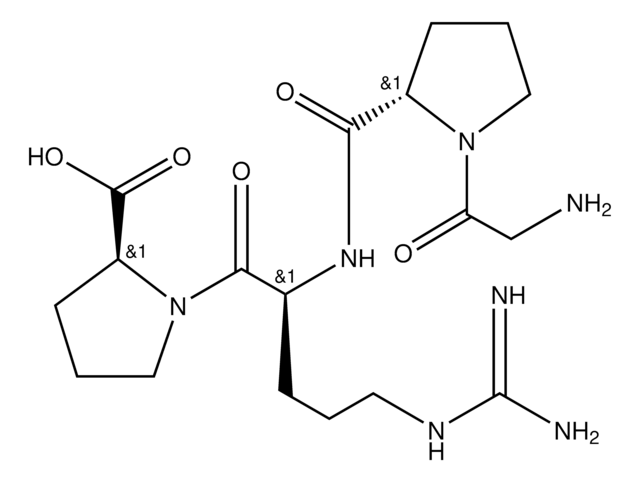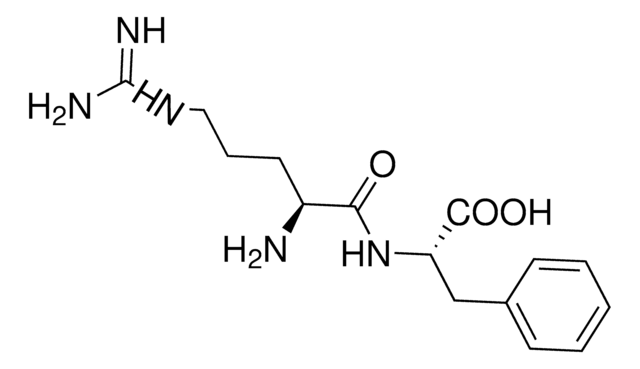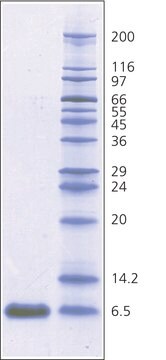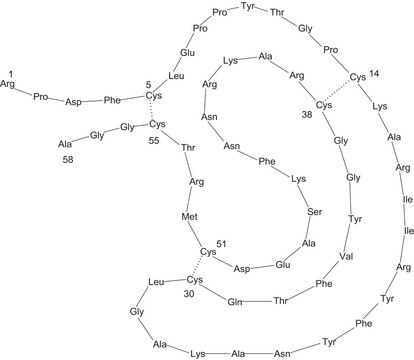G5386
Gly-Gly-Tyr-Arg
powder, ≥97% (HPLC)
Synonym(s):
GGYR, Glycyl-glycyl-tyrosyl-arginine
About This Item
Recommended Products
Product Name
Gly-Gly-Tyr-Arg, ≥97% (HPLC)
biological source
synthetic (organic)
Quality Level
Assay
≥97% (HPLC)
form
powder
solubility
water: 2 mg/mL, clear, colorless
storage temp.
−20°C
SMILES string
NCC(=O)NCC(=O)NC(Cc1ccc(O)cc1)C(=O)NC(CCCNC(N)=N)C(O)=O
InChI
1S/C19H29N7O6/c20-9-15(28)24-10-16(29)25-14(8-11-3-5-12(27)6-4-11)17(30)26-13(18(31)32)2-1-7-23-19(21)22/h3-6,13-14,27H,1-2,7-10,20H2,(H,24,28)(H,25,29)(H,26,30)(H,31,32)(H4,21,22,23)
InChI key
FJPHHBGPPJXISY-UHFFFAOYSA-N
Application
- in the synthesis of the dimethoxyphosphotyrosine adduct to determine if diethoxyphosphate tyrosine (depY), a monoclonal antibody could distinguish between dimethoxyphosphotyrosine and diethoxyphosphotyrosine
- to graft on to a soft polyacrylamide for sodium dodecyl sulfate–polyacrylamide gel electrophoresis (SDS-PAGE) to perform high-resolution separation of peptides
- as a model peptide to react with 3,3-dithiobis(sulfosuccinimidyl propionate) (DTSSP) to understand the chemistry of DTSSP and similar cross-linking reagents
Storage Class Code
11 - Combustible Solids
WGK
WGK 3
Flash Point(F)
Not applicable
Flash Point(C)
Not applicable
Personal Protective Equipment
Choose from one of the most recent versions:
Certificates of Analysis (COA)
Don't see the Right Version?
If you require a particular version, you can look up a specific certificate by the Lot or Batch number.
Already Own This Product?
Find documentation for the products that you have recently purchased in the Document Library.
Customers Also Viewed
Our team of scientists has experience in all areas of research including Life Science, Material Science, Chemical Synthesis, Chromatography, Analytical and many others.
Contact Technical Service














